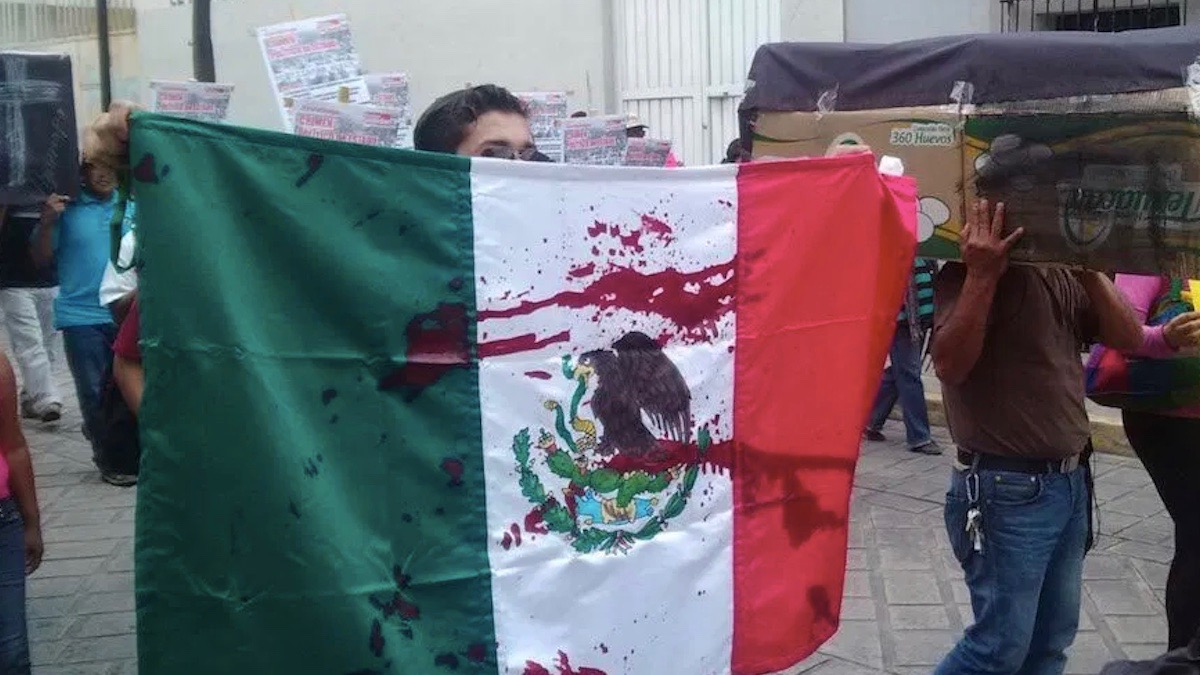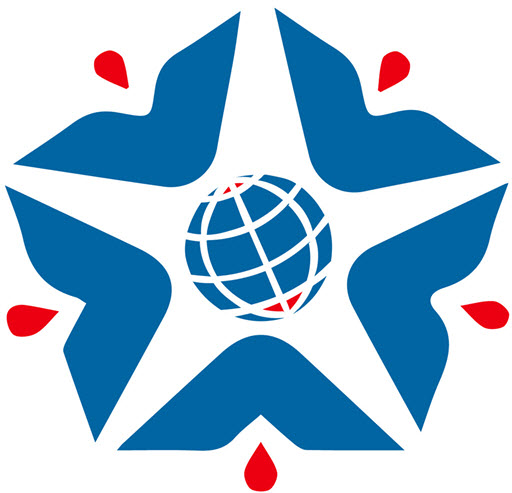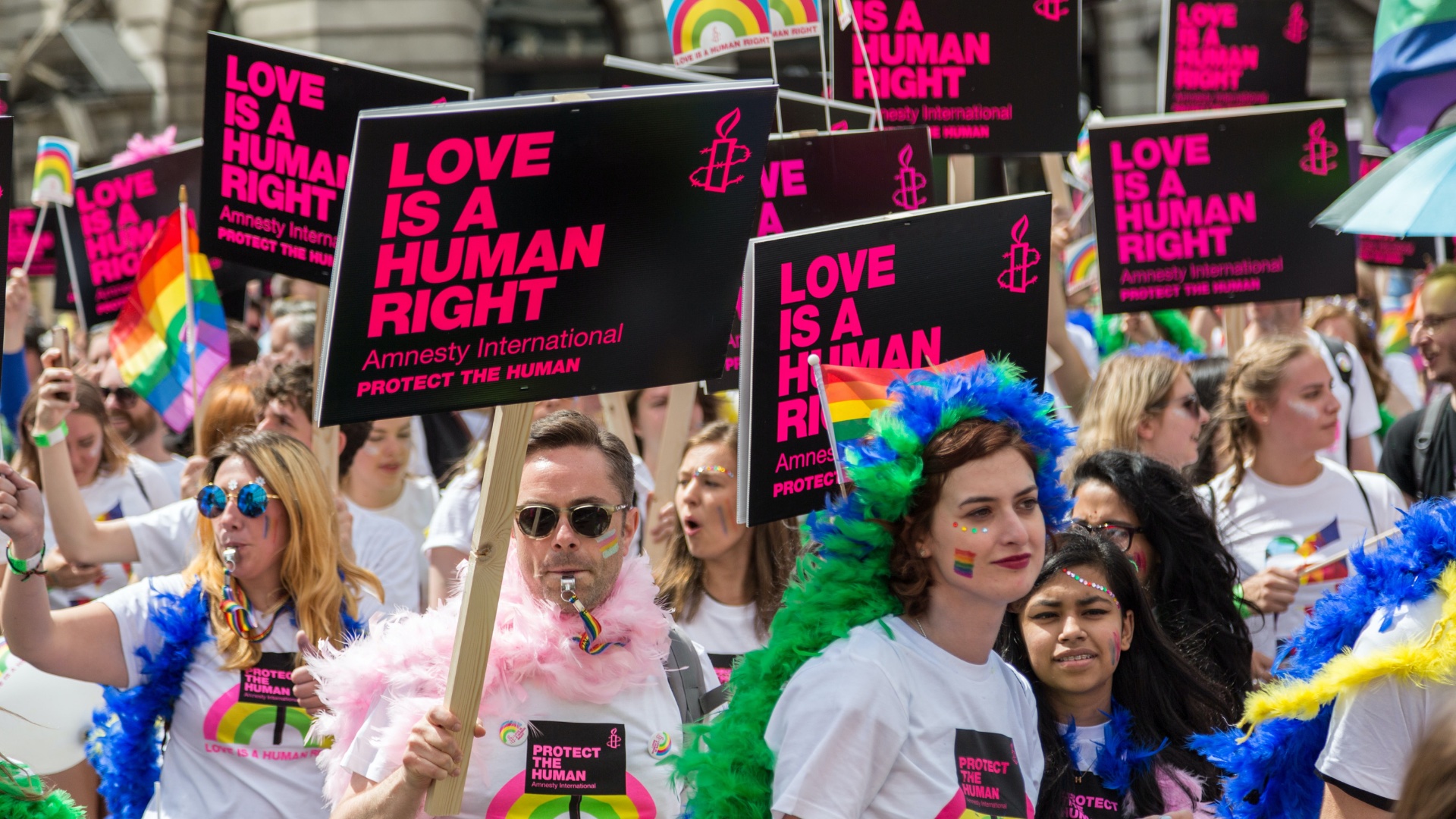
34 candidates assassinated ahead of parliamentary and subnational elections in Mexico, PEOPLE’S DISPATCH (May 26, 2021), https://peoplesdispatch.org/2021/05/26/34-candidates-assassinated-ahead-of-parliamentary-and-subnational-elections-in-mexico/ [https://perma.cc/YZ79-7Z2G].
Nicholas Hove, Associate Member, Immigration & Human Rights Law Review
I. Introduction
The attempted assassination of former President Donald Trump on July 13, 2024, shook American society virtually every source of American media broadcasted the shooting, fears of resulting social division and unstable democracy grew among Americans. For instance, within a week after the assassination attempt, one source referenced the “ugly [American] history of attacks against Presidents and presidential candidates” and the “political reality in 2024, which has been warped by increasingly violent rhetoric, threats, and attacks.”[1] Although any amount of violence may be deemed “ugly,” assassinations of American politicians in the contemporary era are relatively rare. Since 2000, eight American politicians have been murdered, of which none were presidents or presidential candidates.[2] Eight murders are ugly, but 1,271 murders are uglier. This is the recorded number of Mexican politicians murdered since 2000.[3]
The unprecedented levels of political violence and cartel influence surrounding Mexico’s 2024 local and presidential elections not only destabilize the country’s democratic institutions, but also constitute severe violations of international human rights treaties. Urgent reforms and international intervention are needed to restore democratic integrity and ensure the protection of fundamental rights.
II. Background
A. Cartel-Induced Political Violence in Mexico and Its Causes
The term “political violence” is defined by the United Nations (U.N.) Office for Disaster Risk Reduction as “hostile, aggressive, or violent acts motivated by political objectives or a desire to directly or indirectly affect political change or change in governance.”[4] Common examples include protests, riots, coups, terrorism through radicalism, and violent extremism.[5] Organized criminal groups often use this form of violence to intimidate their political opponents, or support their allied politicians.[6]
Despite the lackluster empirical data on the leading causes of political violence in Mexico, studies show that political violence is highly correlated with criminal group activity.[7] In fact, a 2020 study found that organized crime activity is among the strongest correlates in the murders of candidates and politicians.[8]
These organized crime groups consist of drug cartel groups that operate to garner support for certain politicians who support and allow for criminal group activity, and to eradicate “rival” politicians who do not cooperate with criminal groups.[9] Politicians and candidates often become labeled and targeted as “non-cooperating” when they promise to crack down on corruption and organized crime.[10] Thus, politicians and candidates who appear, or are expressly, cartel-friendly do not experience this targeting.[11] These drug cartels use local elections as an opportunity to reinforce their goals by seeking desired political relationships for governmental control.[12] At local elections, the drug cartels employ voter intimidation, threats against, and the murder of, rival politicians.[13]
Particularly, when a cartel-friendly politician wins a local election, the cartel reaps numerous benefits, like control over local government and managing crime control.[14] This allows the cartel to expand its influence and extent of illicit activity, like drug trafficking.[15]
When aiming to understand contemporary trends in cartel-induced political violence, it is necessary to review the context that led to this prevailing issue. In the 1990s, Mexican drug cartels formed financial alliances with politicians who enabled illicit drug trafficking, worth billions of dollars.[16] This industry continued to grow when President Calderón took office in 2006.[17] The President’s war on drugs significantly fragmented the Mexican cartels.[18] Upon taking office, President Calderón immediately declared war against the country’s drug cartels and employed heavily-militarized means to combat them.[19] This disruption caused some of the most influential Mexican cartels to split into smaller organizations.[20] Notably, the Gulf Cartel, the Sinaloa Cartel, and the Milenio Cartel all divided into smaller groups.[21]
This fragmentation cut longstanding ties between politicians and cartel leaders, disrupting the status quo of general political indifference and inaction against illicit cartel activity.[22] Increased conflict and violence between cartels and politicians resulted.[23] The emergence of numerous smaller criminal organizations has led to diversified illicit markets, as the emerging smaller drug cartel groups lack the capacity to interact with the international drug trade market.[24] Thus, these groups increasingly contribute to illicit markets exclusive from the drug trade, like extortion, kidnapping, oil theft, and illegal mineral extraction.[25]
B. Contemporary Outcomes from the Cartel-Politics Nexus
The alarming rise in cartel-induced political violence remains overlooked despite this violence reaching unprecedented numbers in recent years. From 2018 to mid-2024, there have been 1,709 murders, assassinations, attacks, and threats recorded against Mexican politicians and government officials.[26] At least thirty-seven candidates were murdered during the 2024 presidential election alone—marking the deadliest election cycle in modern Mexican history.[27] This poses a new level of threat to Mexican democracy.[28] For instance, the town of Tumbiscatío, Michoacán suffers substantial cartel influence through political assassinations and violent intimidation tactics toward local voters.[29] Due to the town’s prevailing political violence, authorities closed down the town’s voting booth, leaving its residents with no choice but to travel to a different town to vote.[30] This is one of eleven towns in Michoacán that have faced this democratic barrier.[31] Such a reality is unacceptable for Mexican citizens. Despite voter disenfranchisement violating various human rights laws, little is being done to ensure safety and secure Mexico’s democratic functions, leading many to call for the country to take necessary action.[32]
III. Discussion
A. Human Rights Violations
The prevailing cartel-induced political violence poses substantial human rights violations. The Universal Declaration of Human Rights (UDHR), a globally-recognized document adopted by the UN General Assembly in 1948, provides guidelines for adhering to international human rights standards.[33] While the UDHR is not binding, it nonetheless serves as an international set of guidelines to guarantee the rights of every individual everywhere.[34]
The U.N. International Covenant on Civil and Political Rights (ICCPR) is a key international human rights treaty that aims to protect individuals’ civil and political rights, such as the right to life, freedom from torture, and the right to a fair trial.[35] Unlike the UDHR, countries that ratify the ICCPR are legally bound to the treaty.[36]
President José López Portillo y Pacheco ratified the ICCPR on March 23, 1981, legally binding Mexico to the treaty.[37] However, Mexico ratified the ICCPR with reservations in Article 9, paragraph 5 (the right to compensation for victims of unlawful arrest or detention), Article 18 (including the right to freedom of thought and religion), and Article 25(b) (including the right to vote and be elected at genuine periodic elections, and free expression of the electors).[38] Mexico cannot face liability for violating these articles and subsections of the ICCPR. Even with Mexico’s reservations, the current state of political violence and organized crime in Mexico constitutes numerous, actionable human rights violations under the ICCPR.
Namely, the contemporary killings of Mexican politicians and voters violates the ICCPR. Article 6 provides, in part, that “[e]very human being has the inherent right to life. This right shall be protected by law. No one shall be arbitrarily deprived of his life.” Article 7 provides that none “shall be subjected to torture or to cruel, inhuman or degrading treatment or punishment.”[39] Here, the cartel-induced political violence involves violations of these two Articles through the vast arbitrary deprivation of lives and inhumane treatment against politicians and voters.[40]
Article 19 is also implicated. It states that everyone “shall have the right to hold opinions without interference…[and] the right to freedom of expression[.]”[41] Mexican drug cartels’ illicit influence on various political processes establishes violations of these two articles. For example, voter intimidation and violence against voters are clear forms of obstructing Mexican citizens’ rights to hold opinions without interference, as well as their rights to freedom of expression (of political beliefs).[42] Mexican politicians similarly are entitled this freedom; but instead, many die for their beliefs.[43]
Finally, this political violence implicates the Convention Against Torture (CAT), which forbids torture and other cruel, inhuman or degrading treatment or punishment.[44] Mexico ratified the CAT in 1987, binding it to the treaty.[45] Mexico has violated various CAT Articles, like Article 2 and Article 12. Article 2 requires States to take effective measures to prevent acts of torture in any territory under its jurisdiction, which can include cartel-induced political violence, intimidation, or coercion.[46] Article 12 requires prompt and impartial government investigations wherever there is reasonable ground to believe that torture has been committed in the State’s jurisdiction.[47] Here, there is reasonable grounds of torture, and the promptness and impartiality of any government intervention is highly questionable.
B. Implications and Policy Considerations
Reform is necessary for the safety of Mexican politicians, the welfare of citizens, and ultimately, the credibility of the country’s democratic institutions. Far too many politicians and voters have died, and the Mexican government has failed to ensure a proper democratic process in its elections.[48] However, no swift solution exists in tackling the perpetual corruption and violence.
While human rights violations are occurring in Mexico, taking meaningful action seems improbable when considering the amount of power that Mexican drug cartels possess in the various political processes. Many solutions are extremely high risk. Mexico is one of the most dangerous countries for human rights defenders, with twenty-two being killed in 2022.[49] Thus, instead, efforts must be more strategic and subliminal for safety purposes.
i. Domestic Approaches
Any approach should initially entail reviewing the existing literature surrounding the nature of cartel-induced political violence. A 2019 study noted a negative relationship between the number of prosecutors operating in a state with the number of candidates murdered in the respective municipality, meaning having more prosecutors is associated with less murdered candidates.[50] This suggests that a heavy prosecutorial presence may be effective in protecting politicians, voters, and ultimately democracy.[51] Data further shows that most political violence targets local public officials, demonstrating that protective measures may be most successful if implemented at the local government level.[52]
Also, a 2023 study found less violence in municipalities where the municipal and state governments belonged to the same political party as the national government compared to more polarized states.[53] This highlights that providing protection and support to municipalities with less political and social cohesion may be more beneficial.[54] A study from 2022 found that even in polarized states, stable political and security institutions are vital to preventing organized crime violence.[55] For instance, Yucatán has successfully contained its violent crime despite the increase in virtually all other Mexican states, largely due to its close intergovernmental relationships across its governmental departments, along with continuous public security presence and stable relationships between government officials.[56]
While more data is necessary, current research suggests that Mexico must provide greater security to protect politicians, candidates, and voters. Further, and perhaps more importantly, a long-term solution involves stabilizing intergovernmental relationships and a continuous public security presence, as proven successful in Yucatán.
ii. International Involvement
Given the widespread corruption among governmental actors, international involvement is also necessary to combat Mexico’s surge in political violence. Since Mexico is bound by the ICCPR, the UN Human Rights Committee should investigate the severe political violence and the political influence that cartels possess and require Mexico’s adherence to the Committee’s findings and recommendations. However, provided the severe dangers that human rights defenders face, along with corrupt Mexican officials, effective change through this channel may prove a difficult task.
The CAT, which Mexico ratified in 1987, compels Mexico to adhere to the CAT, including taking measures to prevent and punish acts of torture and cruel, inhuman, and degrading treatment.[57] Measures could be taken under this Convention for Mexico to appear for international review, or enforcement of the Convention’s Articles, like enacting effective legislative, administrative, or judicial measures to prevent the torture.[58] More specifically, effective international review could further require heightened compliance with further remedies, like increased security measures or prosecutorial functions.[59] This international review is made possible through Articles 19 and 20; Article 19 imposes a State obligation to submit reports to the Committee Against Torture for the Committee’s review, and Article 20 gives the Committee the authority to initiate an inquiry into the State’s systemic practices of torture.[60] However, given the prevailing dangers for human rights defenders in Mexico, investigators physically present in Mexico could face cartel-related safety concerns, along with general corruption surrounding the entire process.
The CAT and ICCPR Committees should consider the existing domestic literature, as this literature provides viable research-driven solutions to end the political violence in Mexico.
IV. Conclusion
The pervasive influence of organized crime on Mexico’s political landscape, particularly in the recent 2024 election cycle, highlights a profound crisis that threatens Mexico’s democratic processes and its citizens’ human rights. This crisis represents not just a domestic issue but a significant violation of human rights under several U.N. instruments, including the UDHR, ICCPR, and CAT. The extreme political violence and cartel influence surrounding the 2024 elections infringe on the right to life, security, and participation in free and fair elections, core principles protected by these international agreements.
Comprehensive reform is needed to address both domestic and international human rights violations. Domestically, Mexico must strengthen its legal and institutional frameworks to safeguard democratic processes, protect citizens, and enforce accountability for those involved in organized crime. Internationally, the global community has a responsibility to intervene by offering diplomatic, financial, and legal support, ensuring that Mexico upholds its obligations under international human rights law.
Mexico must confront this reality to break its cycle of violence, restore democratic integrity, and protect the fundamental rights of its citizens, paving the way for a stable democratic future. Global cooperation and domestic reform are both essential to overcoming this multifaceted challenge.
[1] Vera Bergengruen, America’s Political Violence Crisis, TIME (July 18, 2024), https://time.com/6999810/political-violence-america-trump-rally/ [https://perma.cc/9VNE-N9JB].
[2] Assassinated American Politicians, GENi, https://www.geni.com/projects/Assassinated-American-politicians/14510 [https://perma.cc/8L4R-8TKC].
[3] María Calderón, Political Violence in Mexico’s 2024 Elections (Wilson Ctr., Mar. 2024), https://www.wilsoncenter.org/sites/default/files/media/uploads/documents/Political%20Violence%20in%20Mexico%27s%202024%20Elections%20-%20Past%20and%20Future%20.pdf [https://perma.cc/S4CY-E9B2].
[4] Sendai Framework Terminology on Disaster Risk Reduction: Violence, U.N. Off. for Disaster Risk Reduction, https://www.undrr.org/understanding-disaster-risk/terminology/hips/so0006 [https://perma.cc/8RVS-ZYPT].
[5] Id.
[6] Calderón, supra note 3.
[7] Electoral Violence and Illicit Influence: Mexico’s Hot Land, Int’l Crisis Group (June 2, 2021), https://www.crisisgroup.org/latin-america-caribbean/mexico/089-electoral-violence-and-illicit-influence-mexicos-hot-land [https://perma.cc/5QAQ-JLQZ].
[8] Victor Antonio Martínez Huerta, Candidates Murdered in Mexico: Criminal or Electoral Violence?, 2 Política y Gobierno 27 (2020), https://www.scielo.org.mx/scielo.php?pid=S1665-20372020000200008&script=sci_arttext&tlng=en [https://perma.cc/W94B-LZ2T].
[9] Maria Calderón, Political Violence in Mexico’s 2024 Elections: Organized Crime Involvement, Wilson Ctr. (Mar. 13, 2024), https://www.wilsoncenter.org/article/political-violence-mexicos-2024-elections-organized-crime-involvement [https://perma.cc/PM2W-GN58].
[10] Id.
[11] Id.
[12] Calderón, supra note 9.
[13] Id.
[14] Id.
[15] Id.
[16] Surge in Political Violence Approaching Mexico Election, Vision of Human. (2021), https://www.visionofhumanity.org/mexico-sees-surge-in-political-violence/ [https://perma.cc/S4YZ-R4XL].
[17] Mexico’s Long War: Drugs, Crime, and the Cartels, Council on Foreign Relations (Aug. 5, 2024), https://www.cfr.org/backgrounder/mexicos-long-war-drugs-crime-and-cartels [https://perma.cc/RA3Y-P38Z].
[18] Explainer: How Mexico’s drug cartels fragmented, BBC Monitoring (Jan. 15, 2018), https://monitoring.bbc.co.uk/product/c1don37v [https://perma.cc/Z8GL-K3E6].
[19] Id.
[20] Id.
[21] Id.
[22] Calderón, supra note 3.
[23] Id.
[24] BBC Monitoring, supra note 18.
[25] Id.
[26] Calderón, supra note 3.
[27] Alex Vasquez, Mexico Election Is Most Violent Since 2018 With 749 Victims, Bloomberg (May 28, 2024), https://www.bloomberg.com/news/articles/2024-05-29/mexico-election-is-most-violent-since-2018-with-749-victims?sref=vxSzVDP0&embedded-checkout=true [https://perma.cc/FX36-9GYC] (The Mexican Presidential election cycle took place from September 2023 to May 2024.).
[28] Lizbeth Diaz, In Mexico, A Wave Of Political Murders Eats Away At Democracy, Reuters (May 24, 2024), https://www.reuters.com/world/americas/mexico-wave-political-murders-eats-away-democracy-2024-05-24/ [https://perma.cc/8N2Y-LC8L].
[29] Id.
[30] Id.
[31] Id.
[32] María Calderón, Political Violence in Mexico’s 2020 Elections: Past and Future, Wilson Ctr (Mar. 11, 2024), https://www.wilsoncenter.org/article/political-violence-mexicos-2024-elections-past-and-future [https://perma.cc/YQV3-95NZ].
[33] U.N., Universal Declaration of Human Rights: History of the Declaration, https://www.un.org/en/about-us/udhr/history-of-the-declaration [https://perma.cc/F6QE-G5VB] (last visited Sept. 28, 2024).
[34] Id.
[35] G.A. Res. 2200 (XXI) A, International Covenant on Civil and Political Rights (Dec. 16, 1966).
[36] Declaration on human rights defenders, United Nations Human Rights Office of the High Commissioner, https://www.ohchr.org/en/special-procedures/sr-human-rights-defenders/declaration-human-rights-defenders [https://perma.cc/M5PN-GHP4].
[37] Ratification Status for Mexico, U.N. Hum. Rts. Treaty Bodies, https://tbinternet.ohchr.org/_layouts/15/TreatyBodyExternal/Treaty.aspx?CountryID=112&Lang=EN [https://perma.cc/QF8T-X5JW].
[38] Status of Treaties: International Covenant on Civil and Political Rights, U.N. Treaty Collection, https://treaties.un.org/Pages/ViewDetails.aspx?chapter=4&clang=_en&mtdsg_no=IV-4&src=IND#EndDec [https://perma.cc/CTC3-QNJG].
[39] G.A. Res. 2200 (XXI), supra note 35.
[40] Calderón, supra note 3.
[41] United Nations Human Rights Office of the High Commissioner, supra note 36.
[42] Calderón, supra note 3.
[43] Id.
[44] G.A. Res. 39/46, Convention Against Torture and Other Cruel, Inhuman or Degrading Treatment or Punishment (Dec. 16, 1966).
[45] CAT/C/MEX/CO/7, U.N. Committee against Torture (2019), https://www.omct.org/en/where-we-work/americas/mexico [https://perma.cc/758J-N7ZY].
[46] Convention Against Torture, supra note 44.
[47] Id.
[48] Calderón, supra note 3.
[49] Mexico: Events of 2023, Hum. Rts. Watch (2024), https://perma.cc/AZ9V-CENN (last visited Sept. 28, 2024).
[50] Guillermo Trejo & Sandra Ley, High-Profile Criminal Violence: Why Drug Cartels Murder Government Officials and Party Candidates in Mexico, 1 British J. Pol. Sci. 203 (Jan. 2021), https://doi.org/10.1017/S0007123418000637 [https://perma.cc/D85Y-642C].
[51] Id.
[52] Nathan Cideciyan, Political Violence in Mexico, Vision of Human. (2024), https://www.visionofhumanity.org/political-violence-in-mexico/ [https://perma.cc/NT7D-E33Z].
[53] Id.
[54] Id.
[55] Id.
[56] Shanna Mattiace & Sandra Ley, Yucatán as an Exception to Rising Criminal Violence in Mexico, 1 J. Pol. Latin Am. 14 103 (2022), https://doi.org/10.1177/1866802X221079636 [https://perma.cc/UU29-8S3U].
[57] U.N. Committee Against Torture, supra note 45.
[58] Convention Against Torture, supra note 44.
[59] Id.
[60] Id.


